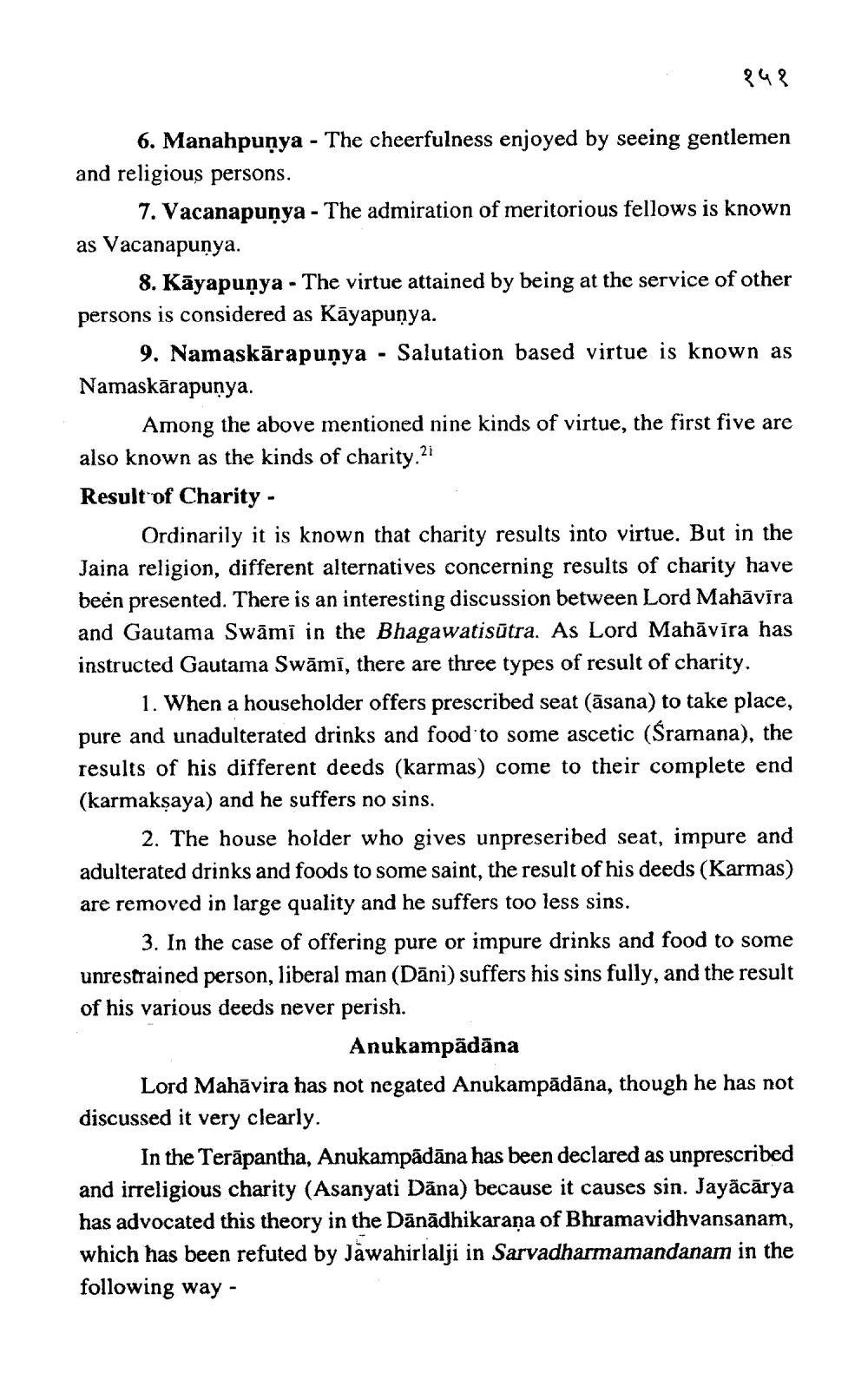________________
१५१
ONY
6. Manahpunya - The cheerfulness enjoyed by seeing gentlemen and religious persons.
7. Vacanapunya - The admiration of meritorious fellows is known as Vacanapunya.
8. Kāyapunya - The virtue attained by being at the service of other persons is considered as Kāyapunya.
9. Namaskārapunya - Salutation based virtue is known as Namaskārapunya.
Among the above mentioned nine kinds of virtue, the first five are also known as the kinds of charity.21 Result of Charity -
Ordinarily it is known that charity results into virtue. But in the Jaina religion, different alternatives concerning results of charity have been presented. There is an interesting discussion between Lord Mahāvīra and Gautama Swami in the Bhagawatisūtra. As Lord Mahāvira has instructed Gautama Swāmī, there are three types of result of charity.
1. When a householder offers prescribed seat (āsana) to take place, pure and unadulterated drinks and food to some ascetic (Śramana), the results of his different deeds (karmas) come to their complete end (karmakşaya) and he suffers no sins.
2. The house holder who gives unpreseribed seat, impure and adulterated drinks and foods to some saint, the result of his deeds (Karmas) are removed in large quality and he suffers too less sins.
3. In the case of offering pure or impure drinks and food to some unrestrained person, liberal man (Dāni) suffers his sins fully, and the result of his various deeds never perish.
Anukampādāna Lord Mahāvira has not negated Anukampādāna, though he has not discussed it very clearly.
In the Terāpantha, Anukampādāna has been declared as unprescribed and irreligious charity (Asanyati Dāna) because it causes sin. Jayācārya has advocated this theory in the Dānādhikarana of Bhramavidhvansanam, which has been refuted by Jawahirlalji in Sarvadharmamandanam in the following way -




